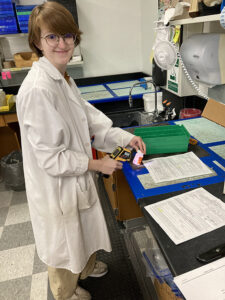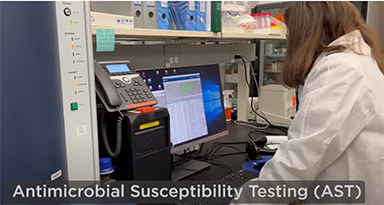A new study published in the academic journal Environmental Research Letters, reveals that the environmental impact of the February 3, 2023, Norfolk Southern train accident in East Palestine, Ohio covered a very large geographical area. Inorganic pollutants released due to the accident were found in wet weather downfall (wet deposition) from the Midwest through the Northeast reaching as far as southern Canada and North Carolina. The findings are significant as many inorganic pollutants in rain and snow have chemical effects on aquatic flora and fauna. According to the paper, these pollutants spread over at least portions of 16 states and an area of 1.4 million square kilometers.
Researchers from the Wisconsin State Laboratory of Hygiene (WSLH) at the University of Wisconsin-Madison were able to estimate the spatial extent and chemical elements deposited resulting from the incident by using precipitation chemistry measurements routinely collected by the National Atmospheric Deposition Programs (NADP) National Trends Network (NTN), which makes routine wet weather measurements at 260 sites across North America.
The train accident and the subsequent fire resulted in the release of many different pollutants into the atmosphere over several days, which the NADP researchers were able to track in precipitation.
Lead researcher and coordinator of the National Atmospheric Deposition Program (NADP), which has been monitoring pollution deposited across North America in precipitation for over 40 years, David Gay, says: “Our measurements not only show the expected high chloride concentrations, but also the vast geographical area they covered. However, even more surprising are the unexpectedly high pH levels (more basic) and exceptionally elevated alkali and alkaline earth metals, exceeding the 99th percentiles of the last ten years of measurements. All of these pollutants are important in the environment because their accumulation has an impact on the Earth’s aquatic and terrestrial environments in many ways.”
“This study demonstrates the important role of a nationwide network for routine precipitation monitoring,” says Dr. Gay. “Our observations allowed us to determine the regional atmospheric impact from the accident and subsequent response activities.”
While the current NADP networks do not quantify organic compounds that might be more specific tracers of the train cargo, the documented widespread impacts on precipitation suggest a significant amount of chemical pollution falling to the earth’s surface as a result of the accident.
Journal article

